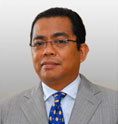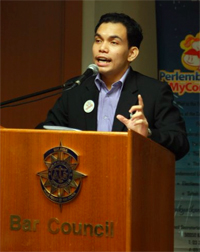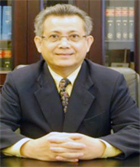IT has been almost six months since the Court of Appeal in a landmark ruling declared it unconstitutional to prohibit university students from supporting or opposing political parties under the Universities and University Colleges Act (UUCA).

On 9 April 2012, Higher Education Minister Datuk Seri Khaled Nordin finally tabled amendments to the UUCA, Private Higher Educational Institutions Act and the Educational Institutions (Discipline) Act for first reading. The three bills were tabled for second and third reading in the Dewan Rakyat on the evening of 19 April 2011 and were passed on the same night after a four-hour debate.
What were the amendments and how would it impact our university students? More importantly, does the revised UUCA provide a freer, safer space for critical thinking and diversity of thought in our varsities?
Few positives
Most notably, Section 15 of the UUCA has been revised to let varsity students join political parties. When the bill was first tabled, however, there was a sub-clause barring students who joined political parties from running in campus elections or holding posts in campus groups. Umno Youth chief and Rembau Member of Parliament (MP) Khairy Jamaluddin, who led the Barisan Nasional Backbenchers Club‘s challenge against the sub-clause, had called it a “ridiculous” restriction.
Although this sub-clause has been removed, I agree with the Bar Council and with Pakatan Rakyat lawmakers that the amendments don’t go far enough. Sections 15(2) to (5) still impede students’ freedom of expression and association as guaranteed under Article 10(1) of the Federal Constitution.
Students are still forbidden from joining any society or organisation deemed “unsuitable to the interests and well-being of the students or the University” by the university’s Board of Directors under Section 15(2)(b).
In other words, just by a university’s arbitrary decision, students can be banned from joining say, Occupy Dataran, Bersih 3.0 or Himpunan Hijau.

Bar Council Constitutional Law Committee chairperson Syahredzan Johan notes that this provision restricts the students’ freedom of association. “It’s in fact very patronising. It assumes that ‘the university knows best’,” he said in an e-mail interview.
On top of that, the students cannot express support, sympathy or opposition to any unlawful individual or organisation under Section 15(3)(a) or those deemed “unsuitable” by the Board under Section 15(3)(b).
“Thus, no student can express support or opposition to Bersih (as it was declared unlawful) or to take an international example, the Muslim Brotherhood (as it has been outlawed in several countries),” Syahredzan points out.
Section 15(4) also does not encourage students to speak up except on academic topics they’re familiar with.
Given that universities should be providing civil spaces for nurturing critical thought and robust debate, the Bar Council has stated its disappointment with the amendments. It called on the government to scrap these provisions entirely.
Restricting political spaces
Besides that, the UUCA still prohibits students from being involved in political party activities on campus under Section 15(2)(d) in the name of maintaining neutrality on campus.

But how would our universities define “political party activities”? If a student organisation were to invite a politician experienced in labour issues to speak about minimum wage, would this count as a political party activity? Where should the line be drawn?
This clause is not only restrictive but is illogical. Most university students are of voting age and should be allowed to decide for themselves if they want to be involved in political party activities on campus. Why should we be afraid to let university students — who are supposed to be among the best brains of society and our future leaders — organise themselves along national political lines? We expect Malaysians aged 21 and above to vote, yet shut national politics out of university campuses.
There will of course be some students who may blindly support the political party of their choice, but that’s precisely why more space for political debate is needed as part of a holistic education. Students of different political persuasions should be allowed to challenge each other’s ideas within and outside the ivory tower.

In short, it should not be neutrality that we seek for university campuses, but originality and diversity of thought.
After all, as Datuk Hishamudin Yunus, one of the learned Court of Appeal judges in the landmark ruling said: “Universities should be breeding grounds of reformers and thinkers, and not institutions to produce students trained as robots.”
Holistic review still needed
What the amendments have merely achieved is to let varsity students join political parties. The Act still falls short of granting more academic freedom to not just students, but faculty and universities as institutions.
The Higher Education Ministry still maintains a stranglehold over public universities’ management with its power to appoint of vice-chancellors and members of the Board of Directors, when such matters are better left to the academics.
And unlike students in the 1960s, current student bodies do not have financial independence. They are at the mercy of the university administration for funds to organise activities and thus, the type of activities they can hold on campus.
If we truly want to create a vibrant, autonomous academia and nurture young, bold leaders in our universities, a thorough instead of piecemeal review of the UUCA is crucial. ![]()
[related-posts]

